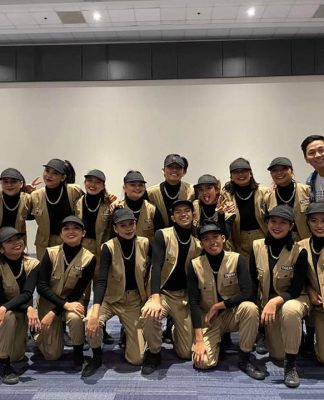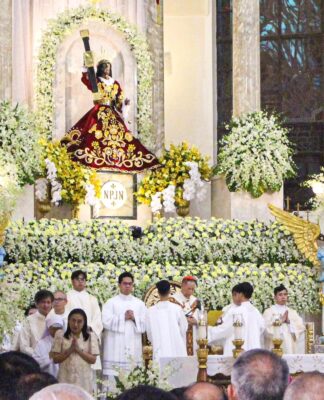NO THOMASIAN has landed on the top 10 of the bar exams for nearly a decade but this year, the Faculty of Civil Law is boasting of a higher batting average.
UST posted a 68-percent passing rate compared with last year’s 54.65 percent. This year, 70 of 103 examinees passed, an improvement from 94 out of 172 aspiring lawyers who made it last year.
The national passing rate, meanwhile, dropped to 20.26 percent from last year’s 24.50 percent. There are 982 new lawyers from the 4,847 who took the test last September at De la Salle University, when 47 were injured when a bomb exploded during the exam’s culmination party or “salubong” on Taft Avenue.
Despite the absence of a Thomasian in the Top 10 roster, Civil Law Dean Nilo Divina is unfazed, saying UST is “more interested in getting a high passing rate.”
“UST is not known for topping the bar examination because that has not been our focus,” Divina said. “Our emphasis is on the total Catholic, legal education and we are more interested in getting a high passing rate.”
According to Divina, there are two reasons for the increase in UST’s passing rate.
He said Civil Law made sure that “only those who are fit and ready to take the examinations were allowed to graduate.” Civil Law also beefed up its faculty line up.
A total of 82 out of 87 seniors were allowed to graduate last year after being deemed “fit” to take the exams.
In 2000, Civil Law set up P250,000, P150,000, and P100,000 rewards for graduates who will place first, second, and third, respectively, in the bar exams.
The last Thomasian who made it to the top 10 was Arlene Maneja in 2002.
Three elements
Divina said a successful law school is a “fusion of three elements”— the best students, excellent faculty, and excellent facilities.
“Last year, we were able to recruit 61 honor graduates and 31 of them, who are now incoming sophomores, are still on the dean’s list,” Divina said. “This batch will be our bet for top position in three years time.”
In addition to scholarship grants that the University provides, the Faculty of Civil Law also provides book and housing subsidies to deserving students.
“I was able to get a donor who gave P10 million. That’s where we are getting the money to finance the scholarship of these students,” Divina said.
The successful examinees will take their oath on April 14, 2011, at the Philippine International Convention Center on Roxas Boulevard. Charmaine M. Parado



















That’s a staggering increase in pass rate – was the exam the same syllabus? Amazing given the unfortunate bomb (I hope no one was seriously hurt!)
This is a real credit to both the students and the faculty — well done!
Making a difference in the established legislation will always be difficult without young blood entering the industry to challenge attitudes no longer deemed relevant to society. It’s vital that universities and other colleges provide opportunities for a legal practice course to allow new barristers, solicitors and other legal professionals a chance to make a difference.